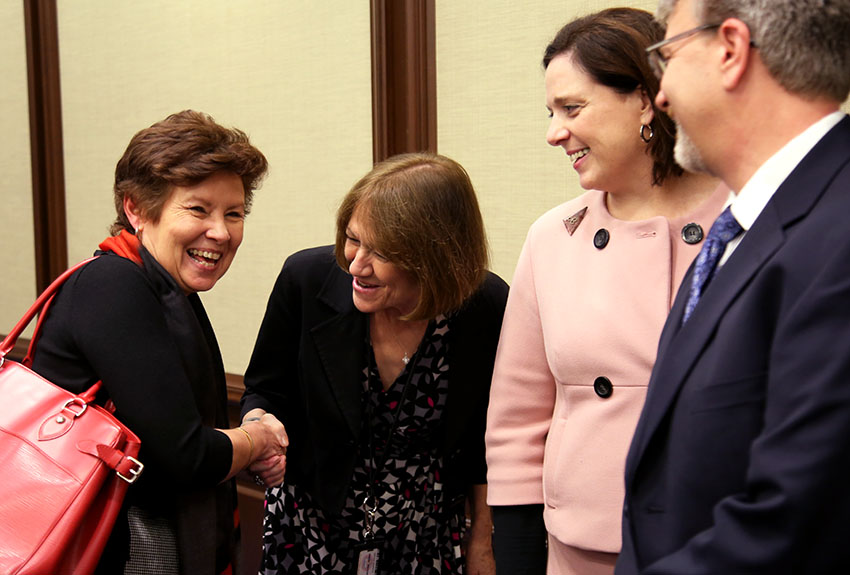The UT System Board of Regents allocated almost $7.4 million to promote students’ mental health, safe alcohol consumption and sexual assault prevention across UT institutions during a meeting Tuesday.
The Board, which governs all 14 UT institutions, first approved $5.995 million of endowment funds for mental health, student safety and alcohol-related education for the next three years. The regents also allocated another $1.4 million to continue studying sexual assault at UT institutions through the Cultivating Learning and Safe Environments, CLASE, program.
While presenting the funding proposal, Wanda Mercer, UT System associate vice chancellor, said suicide is the second leading cause of death of students, and alcohol is their drug of choice.
“Mental health issues (and) the issues of alcohol are really the issues our students are grappling with in our System,” Mercer said. “The top three impediments to academic success are stress, anxiety and depression.”
UT-Austin will help lead the implementation of existing and new student wellness initiatives, Mercer said.
The Moody College of Communication and Dell Medical School will create a $227,000 new System-wide health communications campaign on alcohol and consent, and a $266,800 program to engage male students in sexual assault prevention will be developed from UT’s MasculinUT campaign.
The approved funds will ensure the future of System-wide programs such as bystander intervention initiatives and mental health technology-based programs, including a web-based alcohol safety and sexual assault prevention training required of first-time students, the Thrive at UT app and televised counseling services.
The funds will cover some of the costs of an intervention program for high-risk drinking students and Centers for Students in Recovery at UT institutions, which received $1,595,500.
Chris Brownson, associate vice president of student affairs and director of the Counseling and Mental Health Center, said UT-Austin and the UT System supported some of the first college recovery programs in the nation in 2012.
“In 2012, there were 23 centers for students in recovery. Nine of them in our System,” Brownson said. “Last year, there were 170. I take great pride in the fact that we have done some great things on our campus, had the opportunity to share them with the System and then really see that this had a nation wide impact.”
In 2015, the UT System commissioned an extensive review of sexual assault and misconduct at System institutions. Mercer said there is a need to continue addressing these issues in light of recent concerns.
“You don’t look on your phone and see news items without a reference to sexual harassment, sexual assault and sexual misconduct,” Mercer said. “Society is grappling with this, (and) I fear we will continue to do so.”
The one-year CLASE funding will allow UT-Austin’s Institute on Domestic Violence & Sexual Assault to conduct more sexual assault research focusing on the risks minorities and LGBTQ students face. The Institute will also develop prevention curriculum for students, faculty and staff.
The Board approved both proposals unanimously. Chairman Sara Martinez Tucker and other regents said they appreciated UT-Austin’s efforts in leading these initiatives.
“The health and well-being of our students is very important to us,” Tucker said.


















